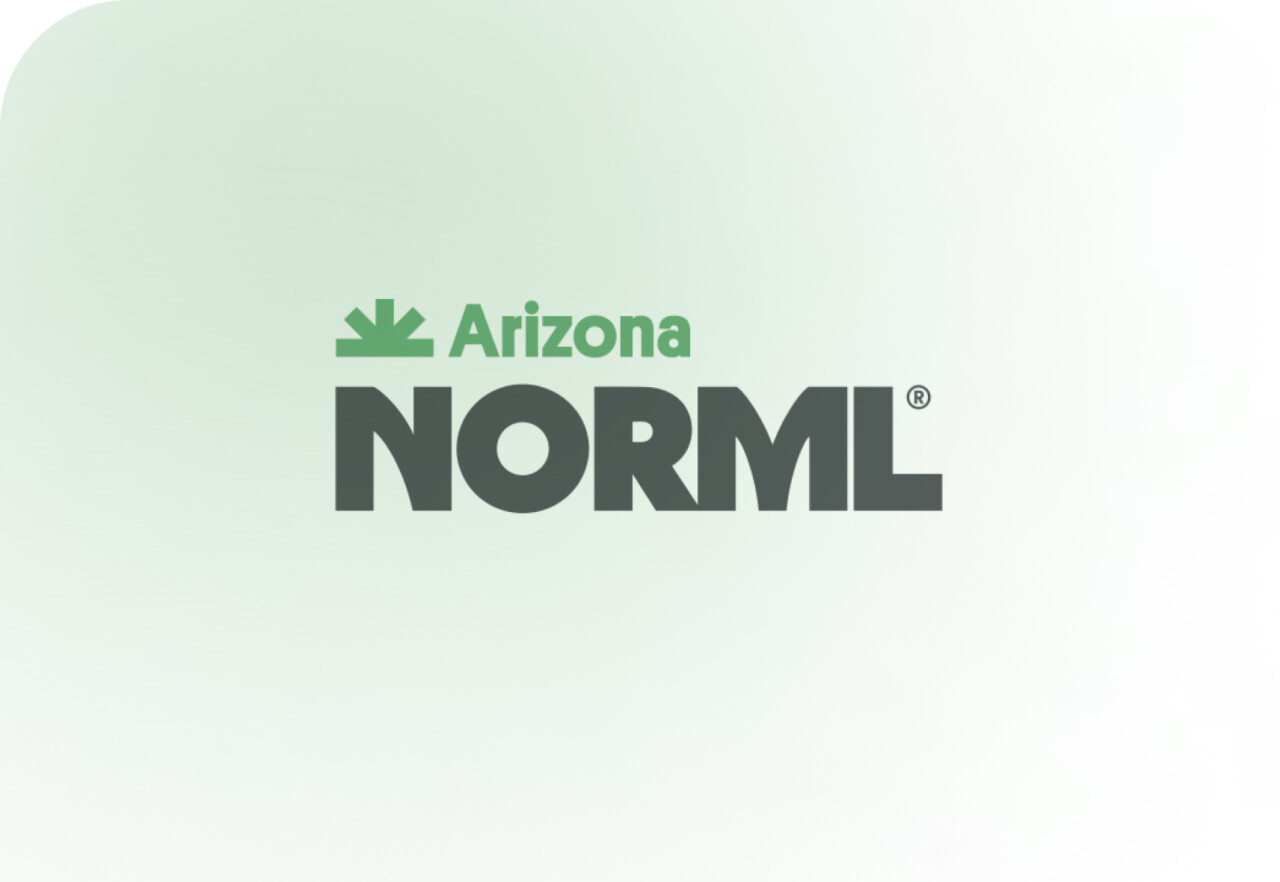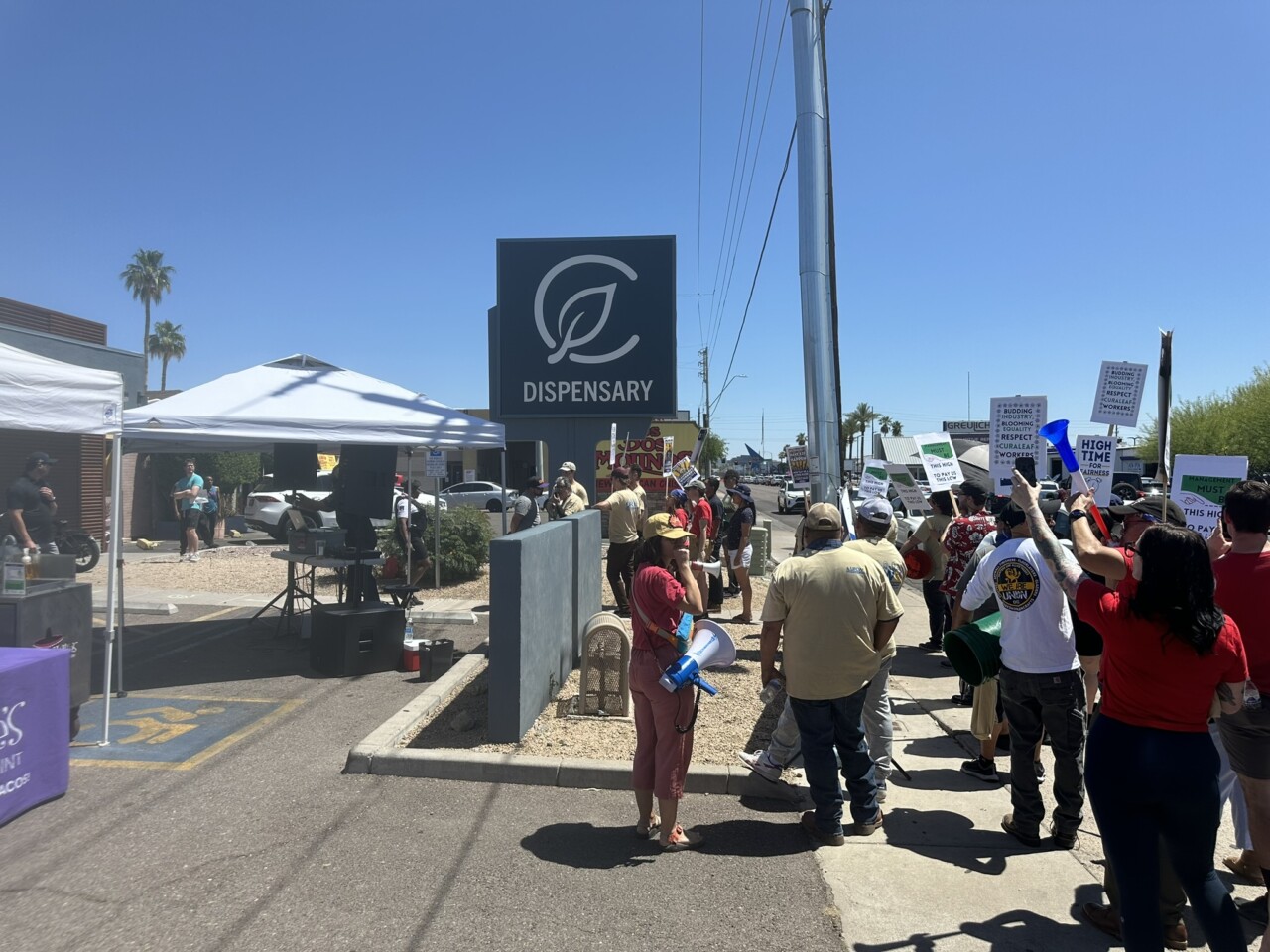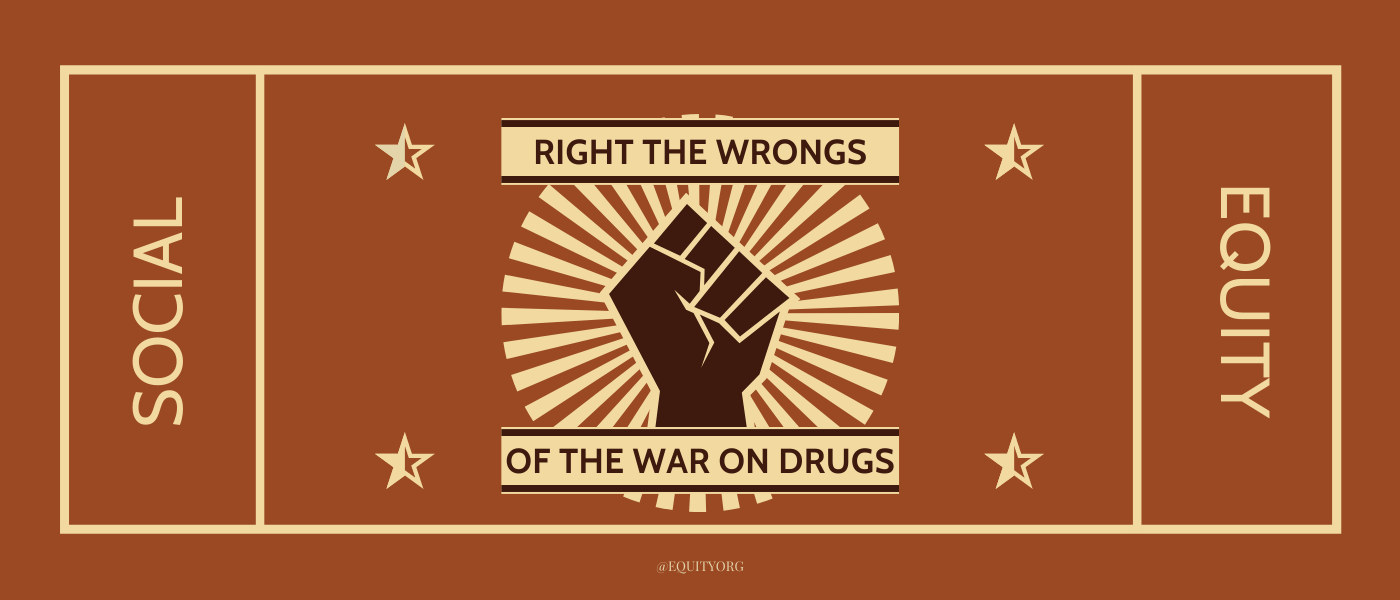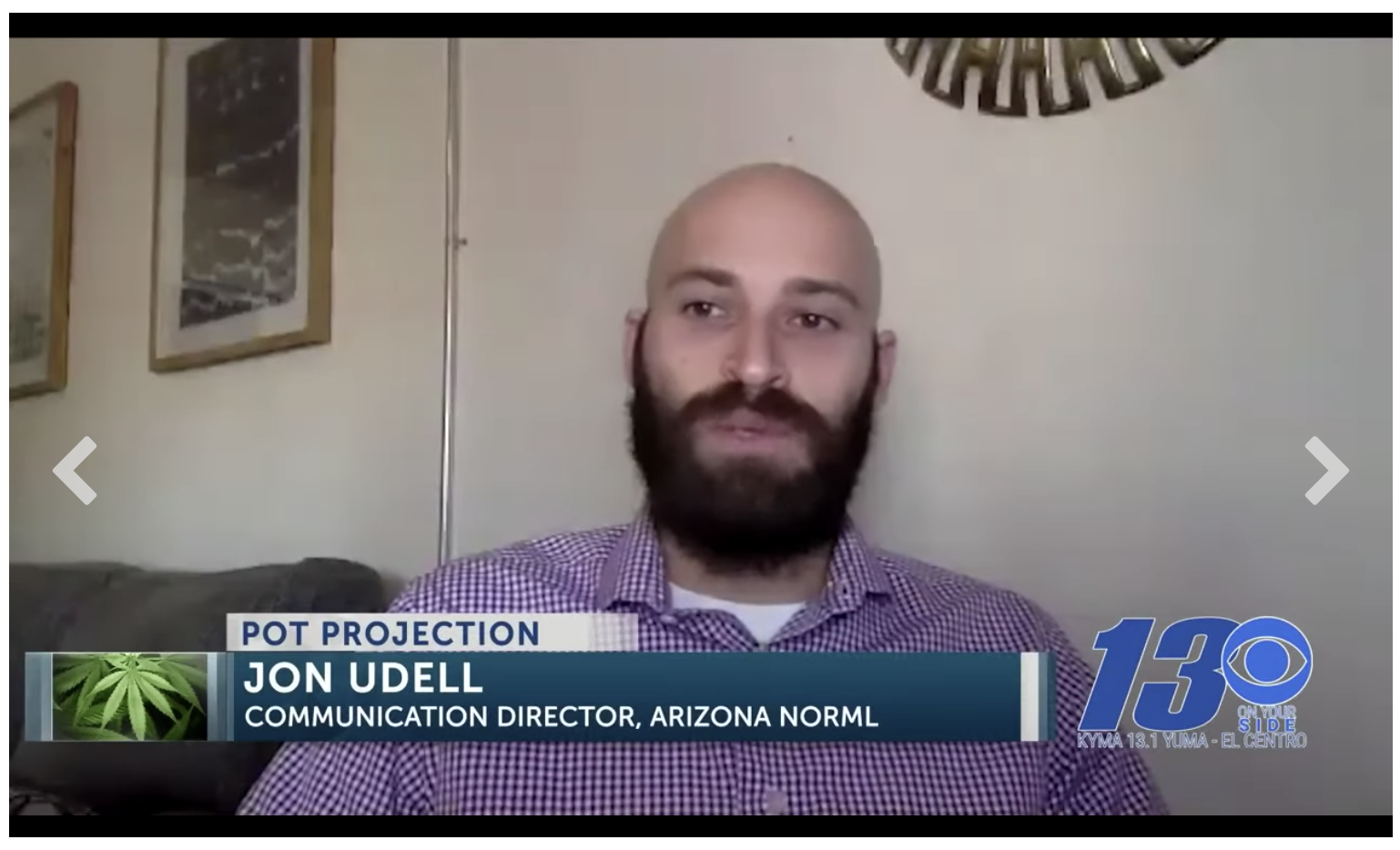New Language Features More Licenses, Beefed up Expungement Provisions
BY MIKEL WEISSER
This afternoon, the Smart and Safe Arizona legalization campaign announced it had completed its 30-day public review process and refiled their cannabis legalization initiative with the Secretary of State’s office. The revised version includes several minor but noteworthy changes.
Since being filed in early August, the ACLU-penned 17-page initiative, which was widely seen as a true step forward on criminal justice reform issues, has fielded feedback from activists, political leaders and competing industry interests. The most common concerns expressed centered around the originally proposed limited business model. The new licensing structure will still issue one adult use license for each current medical use license, about one hundred and thirty, plus will now also include an additional twenty-six vertical adult use licenses specifically earmarked for a social equity program that will provide a pathway to success in the industry for folks from communities disproportionally impacted by prohibition.
Due to the vertical structure of the licensing, each new license represents three new business opportunities. Similar to the business structure of existing medical marijuana industry, each license can include business partners in the retail, manufacturing or cultivation sectors.
First of Its Kind
In the updated language, DHS will be issued a one-time sum of $2,000,000 to design and implement an equity program for over-policed communities, including communities of color that have commonly been the target of the drug war. The social equity program is supposed to be fully operational within six months of the election results being certified.
Also facing the new six-month implementation deadline is a provision that will provide up to $4 million to community-based social justice non-profit organizations to help fund the expungement process. Smart and Safe Arizona’s expungement provisions for previous cannabis convictions had already being hailed as a ground-breaking step forward for Arizona’s criminal justice system. Currently AZ criminal statutes have no provisions for expunging, or seal criminal records.
The program provides for the expungement of arrest records for anyone charged with cannabis offenses such as low-level possession, cultivation under 6 plants or paraphernalia. The revised language now allows for expunging possession charges up to 2.5oz. up from the original draft’s one ounce.
The addition of the funding for non-profits to assist with expungements comes are a result of the decentralized way drug arrests are recorded in Arizona. Currently there is no centralized database for drug arrests. Many of those records are kept at local law enforcement agencies and municipal courts and the state maintains no database of felony charges.
Without a central state database, there is no direct way to create an automatic expungement procedure. In some states, expungement programs have seen minimal participation. Smart and Safe Arizona author, and former AZ-ACLU Board Member Roopali Desai added the funding for non-profits to step up Arizona’s potential for success. Funds are also included to educate the public about the expungement provisions and help participants rebuild their lives.
Other Revisions
In addition to language increasing the licenses and improving expungements, the revised language includes other improvements or clarifications
- Edibles–In response to concerns about ambiguous language, the section regarding edibles dosages has been rewritten to clarify that adult-use edibles will be sold in no more than 10 milligram doses and not larger than 100 milligram packages.
- Deliveries—Minor tweak to the original language. Originally the language specified rules for delivery of adult-use cannabis “MAY” be written by 2023. The change now says the rules “SHALL” be written by no later than 2025.
- Disbursements—Reflecting the campaign’s increased focus on criminal and social justice reforms, the revised initiative increases the share of funds devoted to the new social justice reinvestment from 7% of program tax revenue to 10%. The campaign estimates this could total as much as $30 million per year. Community colleges will receive 33% of the funds in an effort to offset recent budget cuts from the state legislators. Highways will receive 25%, with the remaining 31% going to retrain law enforcement on policing in a post-drug war society.
Now that the final version of the initiative is on file with the Secretary of State’s office, the campaign will have until the first week of July 2020 to collect the required 237,000 valid signatures from registered Arizona voters to qualify for the Nov 3 ballot.
Currently there are just over 200,000 medical marijuana patients in the state program and another estimated half a million cannabis consumers who purchase from unlicensed distributors. If AZ legalizes in 2020, some industry experts estimate Arizona’s cannabis market could top $1.6 billion by the end of 2022.
Mikel Weisser is the state director of AZ-NORML, editor of Arizona Cannabis News and staff for the Smart and Safe Arizona 2020 legalization campaign.







Is there anything being done for the people that live in apt to smoke there medicine because who ever lives in a apt is fucked what’s the use of smoking marijuana for pain when we can’t smoke in our apt